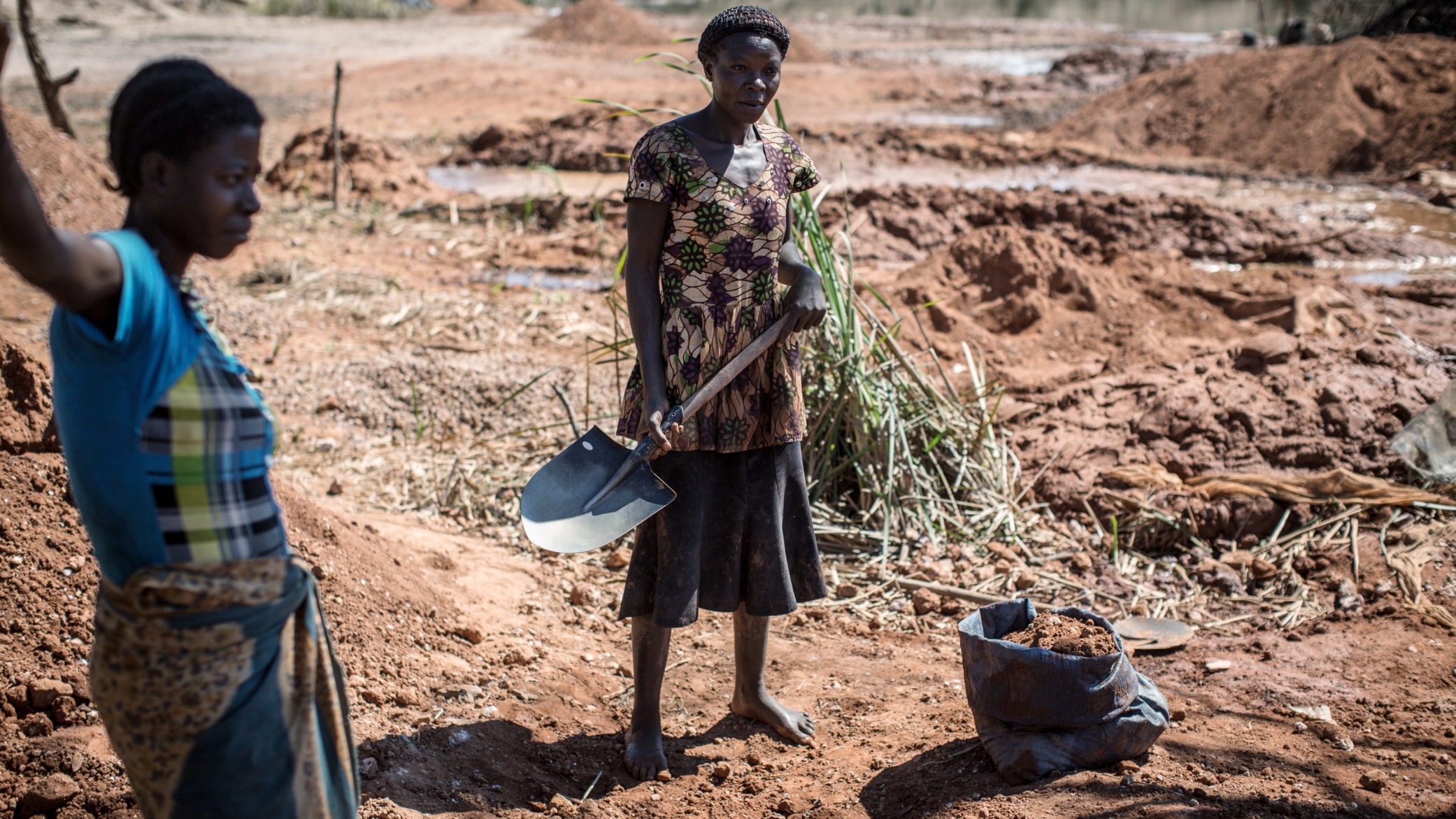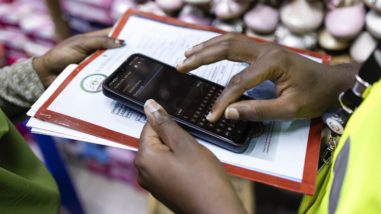When you think of a Congolese miner, I bet you picture a man. But one in four miners in Africa are women — like Bibicha Sanao, who pans for gold to support herself and her family.
Sanao is featured in Geoffrey York’s excellent Guardian and Mail article from northeastern Congo where “unequal pay and cultural taboos have kept women from sharing in the country’s mineral wealth.” York says activists and Canada’s “feminist” foreign aid policy are trying to change that. For me, the story of Sanao and dispatch from York show that for women to share the benefits from mining, they also need to help set the rules.
Mining can be hazardous work, for anyone. But women face specific barriers that men don’t. They get paid less and face discrimination, in laws and in cultural norms. Global data reveals women in most countries earn on average only 60% to 75% of men’s wages However, mining still pays more than other jobs that women traditionally have access to. In Sub-Saharan Africa, seven out of 10 women work in the informal economy, with no benefits like child care, pensions or health care. And women bear the brunt of unpaid care work.
According to the “Women, Business and the Law 2016” report, which collects data about legal restrictions to women’s entrepreneurship and employment, married women like Sanao in the Democratic Republic of the Congo can’t get a job without permission, register a business, open a bank account or sign a contract the same way as married men.
These legal differences, in addition to the pay gap, mean that women don’t have the same opportunities and choices that men do. The mining sector, in particular, is incredibly masculinized. York describes rules that bar women from mining while menstruating or pregnant—rules that result in “significant loss of income for the women.” Unsurprisingly, women are not heard or represented in the groups that set the rules. York wrote:
“The rules that discriminate against women are drafted by government committees in which women have no voice. When a national agreement was drafted on Congo’s small-scale mining sector in 2012, the agreement included an attempted ban on mining by pregnant women – even though women were not consulted and were not present on the committee that drafted the rules.”
I’m heartened to see activists and groups like Partnership Africa Canada helping women participate in mining policy decisions to change the traditional rules that limit their earning potential. And that projects we support with grants from our Global Development and Population Program–like WIEGO’s Focal Cities, Oxfam’s gender and social accountability initiative, and Canada’s International Development Research Center’s Growth and Economic Opportunities for Women (GrOW) program—are also helping women like Sanao participate in—and improve—the processes that affect them most.



